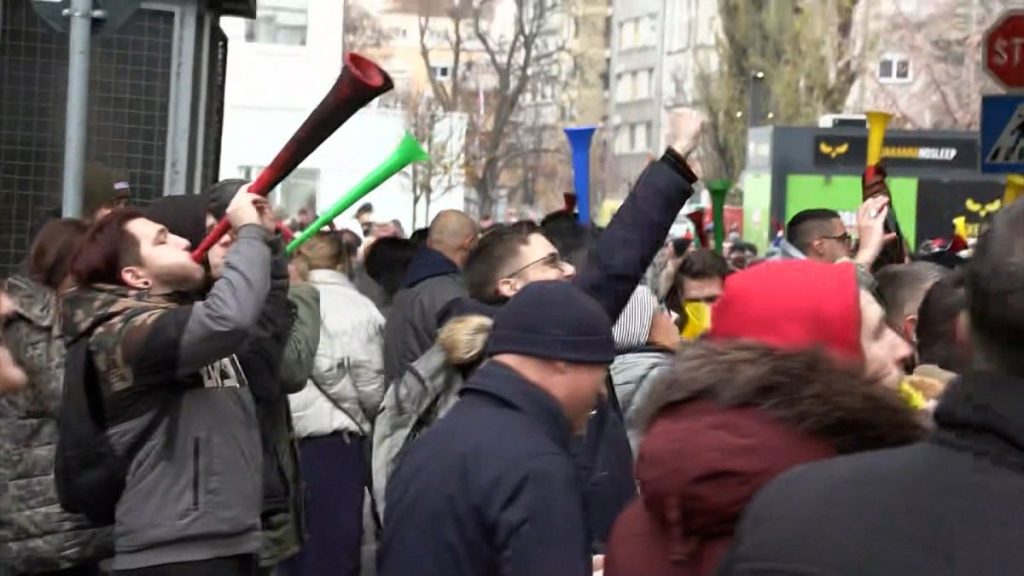On March 12, 2024, protesters in Novi Sad, Serbia, gathered to voice their anger and grief over a tragic incident that resulted in the death of 15 individuals due to the collapse of a station awning. This devastating event catalyzed calls for accountability and justice from local authorities and those responsible for the oversight of public safety standards. The demonstrators’ demands extended beyond justice for the victims; they also called for an end to government negligence and a rigorous investigation into the circumstances surrounding the collapse.
The protests were fueled by widespread frustration among citizens regarding how infrastructure maintenance and safety protocols had been handled in the country. Many participants expressed a belief that systemic issues and lack of proper oversight contributed to the tragedy, highlighting the need for a thorough examination of building codes and inspections. Activists emphasized that such incidents should prompt reforms in public infrastructure management to prevent future catastrophes and to ensure that safety regulations are rigorously enforced.
Furthermore, the protests included demands for the release of activists who had been detained while protesting. This reflects a broader context where dissenting voices and those advocating for change often face governmental pushback. The demand for the release of these activists signifies an urgency felt among the citizens, who not only mourn the loss of life from the collapse but also the silencing of those fighting for accountability and justice in the aftermath of public tragedies.
The emotional weight of the protests was palpable, as many participants were directly impacted by the loss of friends and family in the collapsing awning incident. This personal connection to the tragedy drove home the urgency of their demands, making the protests not just a political statement but a communal mourning for lives lost and a call for systemic change. The gatherings frequently featured moments of reflection and memorialization for the victims, further solidifying the event’s connection to both loss and activism.
In response to the protests, local authorities have issued statements expressing condolences for the families of the deceased but have been criticized for failing to take substantial action to address the demonstrators’ concerns. Many citizens believe that simply offering condolences is insufficient if it does not lead to meaningful change. They argue that real accountability would require a reevaluation of policies governing public safety and infrastructure, as well as potential ramifications for officials deemed negligent in their duties.
Overall, the protests in Novi Sad represent a significant moment in Serbia’s ongoing struggle for justice and accountability in the face of tragedy. As citizens demand that their voices be heard, the incident serves as a crucial reminder of the importance of maintaining safety standards and providing transparency in governmental oversight. The push for reform and the release of activists indicates a broader desire for change in how public safety is prioritized and managed, urging authorities to learn from the past to prevent similar incidents in the future. This moment could mark a pivotal point in the collective consciousness of the community, emphasizing the need for proactive measures in protecting citizens’ lives.














